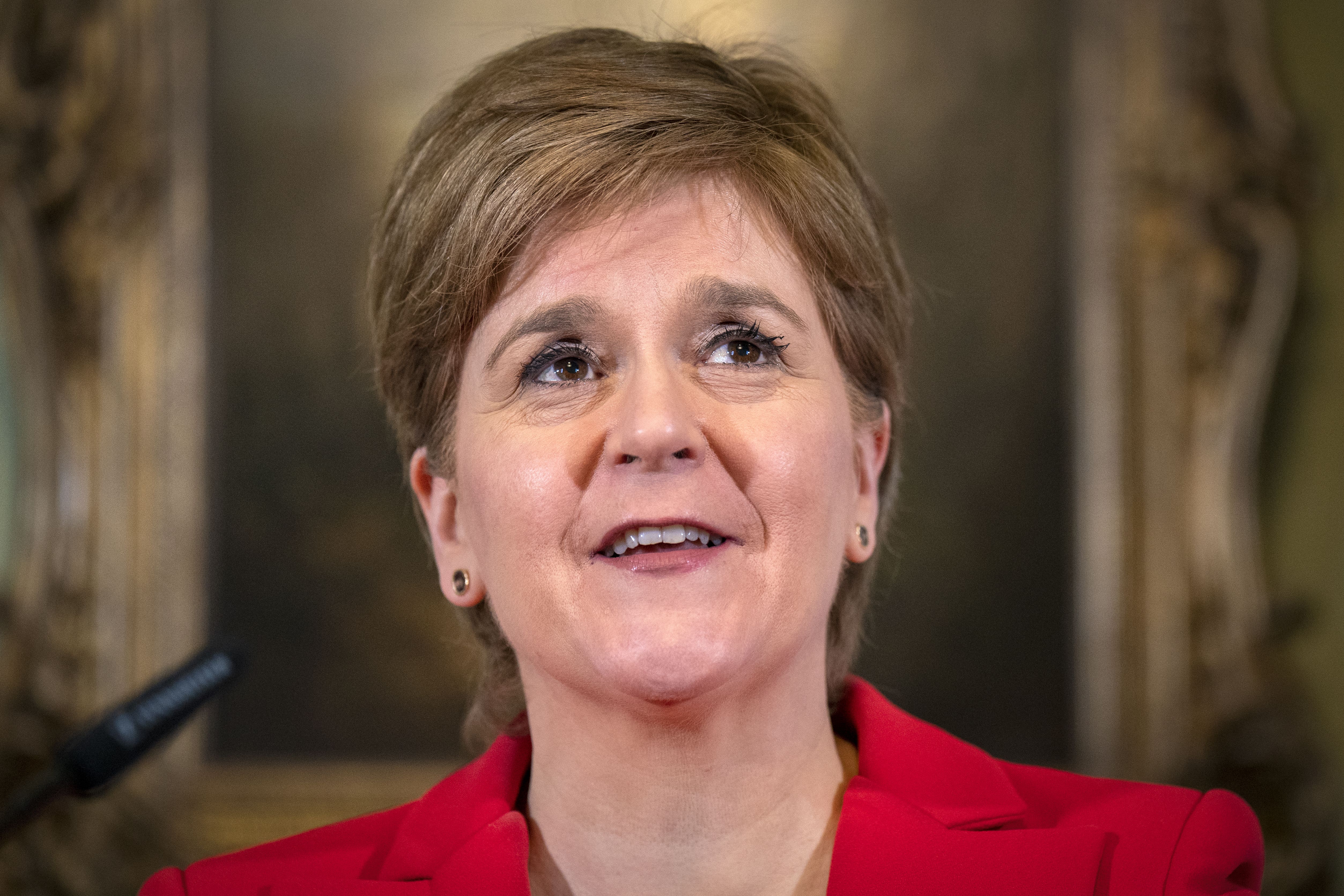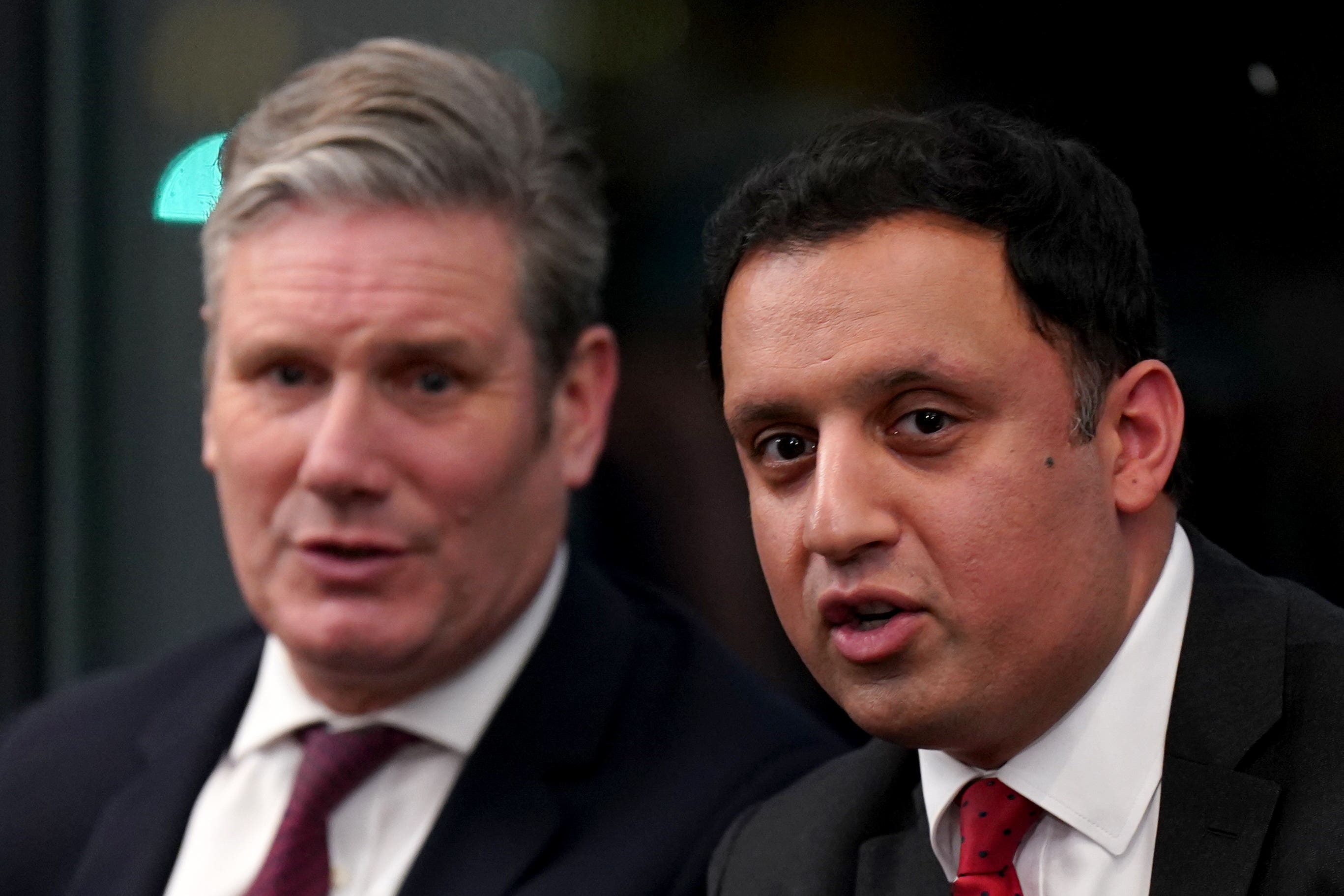Nicola Sturgeon’s tearful exit throws push for Scottish independence into doubt
Breakaway movement now ‘dead’, claims opposition, after charismatic SNP leader quits
Your support helps us to tell the story
From reproductive rights to climate change to Big Tech, The Independent is on the ground when the story is developing. Whether it's investigating the financials of Elon Musk's pro-Trump PAC or producing our latest documentary, 'The A Word', which shines a light on the American women fighting for reproductive rights, we know how important it is to parse out the facts from the messaging.
At such a critical moment in US history, we need reporters on the ground. Your donation allows us to keep sending journalists to speak to both sides of the story.
The Independent is trusted by Americans across the entire political spectrum. And unlike many other quality news outlets, we choose not to lock Americans out of our reporting and analysis with paywalls. We believe quality journalism should be available to everyone, paid for by those who can afford it.
Your support makes all the difference.Nicola Sturgeon’s shock resignation as first minister has raised doubts about the future of Scottish independence – with opposition parties declaring the SNP’s cause “dead”.
The SNP leader announced she was stepping down at a press conference on Wednesday, lamenting the “brutal” nature of politics and saying she knew “in my head and in my heart” that it was the right time to step down.
Ms Sturgeon has come under fire for saying that her party would fight the next general election as a de facto referendum on Scottish independence – an issue she said the SNP was now “free” to decide how to pursue following her exit.
But Labour figures claimed her resignation would give their party an opportunity to win back as many as 20 seats in Scotland, where Labour was almost wiped out just eight years ago, and boost Sir Keir Starmer’s chance of a majority at the 2024 general election.
Ms Sturgeon insisted her decision to step down was “not a reaction to short-term pressures” – which have included major controversies over her gender self-ID reforms and the housing of trans prisoners – insisting that it was the result of “a deeper and longer-term assessment”.
The SNP chief said she had been “wrestling” with the decision to step down for weeks, explaining that she had needed to consider the “physical and mental impact” of leading the country for the past eight years.
Ms Sturgeon said she would not give an opinion on who should succeed her, as she announced that an SNP leadership contest would take place in the weeks ahead. Senior MSPs Angus Robertson, Kate Forbes and Humza Yousaf are the early favourites to take over her role.
The SNP leader has endured a tricky few months, losing a legal bid to hold a second independence referendum after the Supreme Court ruled in November that the Scottish parliament could not lawfully legislate on the issue.
She was heavily criticised for initially vowing to turn the next general election into a de facto referendum on Scottish independence. Unionist parties accused her of being “out of touch” with public opinion, with recent polls showing that two-thirds of Scots were against the idea.
The SNP boss disappointed many nationalists by dropping the firm pledge last month, instead announcing that the matter would be discussed at a special conference in March.
Ms Sturgeon said on Wednesday: “I believe I have led this country closer to independence ... I believe that my successor – whoever he or she may be – will lead Scotland to independence, and I’ll be there cheering him or her on every step of the way.”
Senior Labour figures believe that her exit has harmed the push for independence, and are hoping to reclaim up to 20 seats in Scotland at the 2024 election – a performance that could make the difference between a hung parliament and an outright majority.
“It’s clear that another referendum on independence is dead, and that the first minister’s strategy has hastened that demise,” a Labour source told The Independent. “It was never a priority for the vast majority of Scots, and what we will be doing is continuing to concentrate on dealing with the issues that really matter and getting a UK Labour government.”

Ms Sturgeon’s predecessor Alex Salmond warned that the SNP had been “left with no clear strategy for independence” and no obvious successor, while political experts said that the push for a second referendum on separation had been left in short-term “disarray”.
Labour peer George Foulkes told The Independent: “I think the chances of the SNP moving the dial on independence are diminished by her leaving. I can’t see anyone who has the charisma of Sturgeon now taking over.”
The former Labour MSP and Scotland Office minister added: “It gives Labour a stronger chance in Scotland, even if colleagues won’t want to get carried away. It wouldn’t take too much for us to do well and win quite a few seats.”
But Andy Maciver, the Scottish Tories’ former media chief, warned Labour and the other unionists parties not to get overexcited about Ms Sturgeon’s departure. “It may leave the independence strategy in disarray in the short term, because they will be having an argument about the way forward in public,” he said.
“But the SNP has time to sort it out,” Mr Maciver added. “Labour has an opportunity to step in and offer something else when it comes to the constitutional argument. But they have to take that opportunity, because the recent Gordon Brown proposals on reform were very, very timid.”

Former Labour first minister of Scotland Jack McConnell also warned against complacency when it comes to independence. “Those today who are gloating need to calm down a bit,” he told The Independent. “We all need to raise our game. The other parties reacted badly to the 2014 referendum result. The question for Labour and other parties is, are they ready to set out an ambitious agenda for Scotland?”
Scottish Tory leader Douglas Ross MSP said he was “glad” Ms Sturgeon was going, saying she had “refused to accept the result” of the 2014 referendum and had spent the years since on “relentless agitating” for another vote.
Scottish secretary Alister Jack said her exit “presents a welcome opportunity for the Scottish government to change course and to drop its divisive obsession with independence”.
SNP Westminster leader Stephen Flynn said Ms Sturgeon had been “the outstanding political leader” in the UK for a generation, while Ian Blackford, the party’s former leader in Westminster, said she had been the “finest first minster Scotland has ever had”.
SNP MP Joanna Cherry, who has clashed with the leadership over the trans issue, called for Ms Sturgeon’s husband Peter Murrell to step down as chief executive – demanding that a “neutral caretaker” oversee the leadership contest.






Join our commenting forum
Join thought-provoking conversations, follow other Independent readers and see their replies
Comments